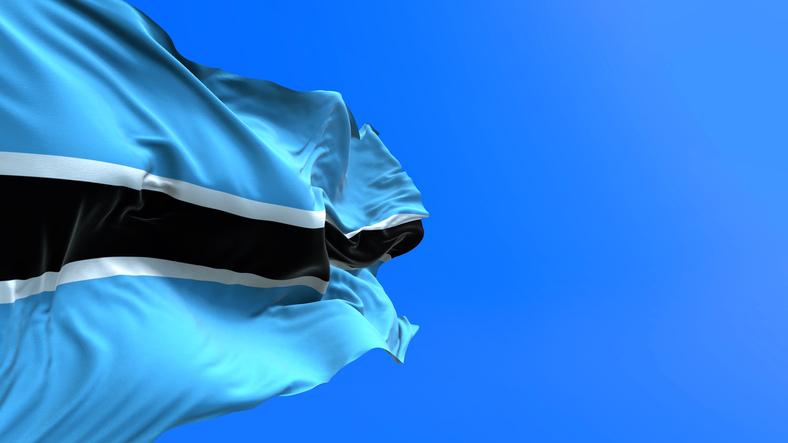
How Botswana Became the World’s Fastest-Growing Economy
From 1965 to 1995, Botswana recorded the fastest rate of economic growth in the world. The spectacular success of Botswana has baffled many analysts, because after securing independence in 1966, Botswana’s prospects were unpromising. After all, Botswana is landlocked and on average, the record of such countries is unimpressive. But geography was not Botswana’s only obstacle to development. Independent Botswana suffered from a severe shortage of human capital.
One study suggests that in 1965, 72.7 percent of Botswana’s citizens over the age of 25 had no formal schooling, 24.6 percent had benefited from primary schooling, and 0.1 percent of citizens over 25 had completed tertiary schooling. The raw figures evoke a more depressing image by articulating that only twenty-two people in the country were university graduates and one hundred had completed secondary schooling. In contrast, Zambia had ten times as many secondary school graduates and Uganda seventy times as many. Further, unlike other colonies, British investments in Botswana were marginal, and when the colonial government exited, Botswana had twelve kilometers of road.
Yet despite these hurdles, Botswana became a beacon of hope in Africa. However, dissecting the history of Botswana reveals that the quality of its precolonial institutions may shed light on its postcolonial success. In precolonial Botswana, mechanisms created by the Tswana tribe acted as a bulwark against tyranny. Relative to other tribes, their precolonial institutions sought to limit the authority of chiefs. Chiefs were required to consult the Kgotla (traditional assembly) before presenting a decision, even though they had the final say.
As a result, compared to other ethnic groups in Africa, the culture of the Tswana fostered dissent. Moreover, in precolonial Botswana, communal and private property rights coexisted. For instance, unoccupied land, which was abundant served a communal function, although the chief reserved the right to redistribute it to members of his tribe for agricultural purposes. But, on the other hand, private property rights mandated by customary law allowed for the accumulation of personal articles and cattle.
In short, the caliber of precolonial institutions clearly facilitated the rise of Botswana in that officials could not exercise power unchecked. But, as Scott Beaulier shows in his critique of the institutional argument, the institutions are unable to tell the whole story: “If the inclusive pre-colonial institutions effectively constrained elites, why did Botswana perform so poorly before independence? Botswana was the third poorest nation in the world before its independence.”
So, if institutions are so important, why did they fail to induce economic growth in precolonial Botswana? The problem is that quite often we ignore the subtle distinctions between political and economic institutions. Political institutions are growth enabling, whereas economic institutions are growth promoting. That is, political institutions can foster growth by getting out of the way of private actors, and by protecting the peaceful accumulation of capital from both private and government thieves. For political institutions to be fruitful, they must prevent the expropriation of resources by the state.
On the other hand, if growth is nonexistent due to the primitive nature of economic institutions, protecting private property is not especially fruitful in terms of growth. In Botswana, precolonial economic institutions remained primitive indeed, and the antigrowth character of institutions in precolonial Botswana is conveyed by Valentin Seidler:
Pre-colonial Tswana trade was typical of a subsistence based economy. Typically, surplus goods were traded in the markets. We do not know of any enterprise-oriented production for markets. Market exchange was governed by personal relations among men…. Inter-tribal trade usually needed the presentation of the trader before the goods of the receiving tribe could be exchanged…. Relative prices had to be known by the market participants which increased transactions costs.
Invariably, economic institutions in precolonial Botswana were relatively unproductive. So, although political institutions in precolonial Botswana were relatively unproblematic, they have little explanatory power due to the limited productivity of precolonial Botswana. Hence, political institutions are a better predictor of growth in the postcolonial era.
During this era, Botswana witnessed the growth of the agricultural and mining sectors, and historically, and as the economy modernized in the postindependence era, the relatively benign nature of Botswana’s historical political institutions became crucial and was reflected in the government’s commitment to investors. Since the risk of expropriation was low, entrepreneurs had an incentive to invest. The logic of the story is that in the precolonial era the economic institutions failed to maximize the fruits of economic transactions and as such political institutions were less effective at cultivating growth, considering that their primary role is to enable growth by creating a predictable economic environment.
Undoubtedly, some scholars have exaggerated the primacy of precolonial institutions, yet the fact remains that Botswana has an institutional advantage. According to Julius Kilza (2008), unlike her peers in Africa, the government of Botswana approached economic policy with prudence. As Kilza posits: “In Botswana, as in Mauritius, the ideology of the dominant party the Botswana Democratic Party was developmentalism…. The BDP adopted a pragmatic economic ideology. In the face of limited savings for national development, the BDP invited foreign capital to invest in Botswana. More importantly, revenues from mineral wealth have not been stolen. They have been channeled to productive institutions, thanks to the developmentalism of both politicians and bureaucrats.”
Also, the government of Botswana dismissed the antiwhite sentiments that proliferated throughout the region in the 1970s. Botswana gladly embraced refugees from South Africa and Zimbabwe who made a significant contribution to the economy. Scott Beaulier argues that other nations could have been like Botswana if they had had better leaders: “Every African nation could have turned out like Botswana, but most newly elected leaders chose reform paths, that were not conducive to long-term growth…. Khama, by contrast, made good policy decisions during Botswana’s post-colonial transition. The wise choice made by Khama have kept Botswana on a growth path for more than 30 years.”
The lesson from Botswana’s success is that countries are not slaves to the past. With the right institutional framework and policies, like Botswana they can overcome the history of colonialism and the curse of geography.



